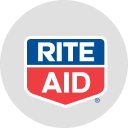
Peptic Relief Coupons & Savings Card – Discount Prices from $3.78
Brand for: Bismuth subsalicylate
My prescription
Edit
262MG, Bismuth Subsalicylate (30 Tablet Chewables)
Select pharmacy

Walgreens
$3.78
COUPON PRICE
Albertsons
$11.16
COUPON PRICE
Walmart
$12.19
COUPON PRICE
Rite Aid
$16.67
COUPON PRICEPeptic Relief savings card
Show this card to your pharmacist
Walgreens
$3.78
BIN
ID
PCN
GRP
015995
LHKJN771245
GDC
DR33
Powered by
More prescriptions for nausea
More prescriptions for nausea
Peptic Relief dosage forms
| Dosage | Quantity | Price from | Per unit |
|---|---|---|---|
| 262MG | 30 Tablet Chewables | $11.27 | $0.38 |
Peptic Relief Side Effects
While side effects from this medication are uncommon, it is important to be aware of them. The most frequently observed side effects include darkening of the stools and tongue, which are harmless and will disappear once you stop the medication. It is reassuring to note that many individuals who use this medication do not experience serious side effects.
However, it is crucial to monitor for signs of dehydration, such as reduced urination, a dry mouth, increased thirst, a rapid heartbeat, or dizziness. If these symptoms occur, seek medical advice promptly, as persistent vomiting or diarrhea can lead to dehydration. More serious side effects, although rare, require immediate attention. These include ringing in the ears, hearing loss, persistent abdominal pain, vomit resembling coffee grounds, and black, tarry, or bloody stools, as they may signal bleeding in the stomach or intestines.
Allergic reactions are also rare but can be severe. Seek urgent medical help if you experience symptoms such as a rash, itching or swelling (especially of the face, tongue, or throat), severe dizziness, or difficulty breathing. This summary does not cover all possible side effects, so if you notice any other unusual symptoms, consult your healthcare provider for further guidance.
Peptic Relief Interactions
This medication may interact with various other drugs, including Valproic Acid, carbonic anhydrase inhibitors like Acetazolamide, corticosteroids such as Prednisone, dichlorphenamide, and Methotrexate. Additionally, it can increase the risk of bleeding if taken with other medications that have similar effects, such as anti-platelet drugs like Clopidogrel and blood thinners like Dabigatran, Enoxaparin, or Warfarin.
Be sure to check both prescription and over-the-counter medicine labels carefully because many contain pain relievers or fever reducers (NSAIDs like Aspirin, Ibuprofen, or Naproxen) that are similar to this medication. Combining them might elevate your risk of experiencing side effects. However, if your doctor has advised you to take low-dose aspirin (81-162 milligrams daily) for heart attack or stroke prevention, continue doing so unless otherwise instructed by your doctor. Consult your doctor or pharmacist if you need more information.
Furthermore, this medication might interfere with certain medical or laboratory tests, such as intestinal X-rays using contrast dye, potentially leading to inaccurate results. It is important to inform all lab personnel and healthcare providers that you are using this medication.
Using the SaveHealth discount card, what is the price of Peptic Relief without insurance?
Using the SaveHealth discount card, the price of Peptic Relief without insurance is $3.78.
With the SaveHealth coupon, what is the price of Peptic Relief with insurance?
Using the SaveHealth coupon, the price of Peptic Relief with insurance is $3.78.
What is the price of Peptic Relief at Walgreens?
The price of Peptic Relief at Walgreens is $3.78. SaveHealth can help you save 84% on Peptic Relief at Walgreens.
What is the price of Peptic Relief at Walmart?
The price of Peptic Relief at Walmart is $12.19. SaveHealth can help you save 49% on Peptic Relief at Walmart.
